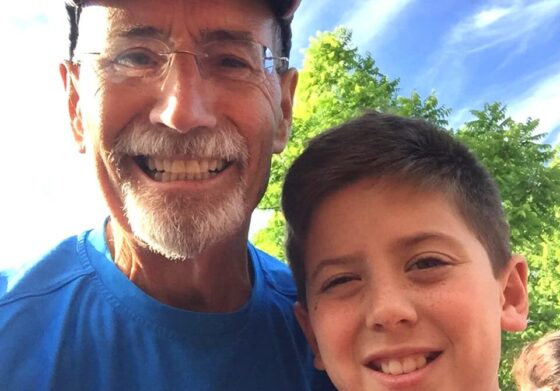I was an avid runner for years. In my mid-60s, I noticed I was getting winded more easily.
I was in good shape and used to long runs, but I started wheezing and felt out of breath earlier on, especially running on inclines. I wondered if this was part of getting older, or if something was really wrong.
My doctor checked me out and said everything was fine, and my heart was in good shape. I thought the wheezing could be due to my work history with asbestos, perhaps asbestos scarring, and tried to fight through it.
This went on for a few years. I did better running on flat areas, so I tried to stick to those to avoid wheezing. The next health change I noticed was that I was getting full quickly after eating. That was unusual for me, and I went back to my doctor to figure out what was going on.
“If anything unusual is happening, explain your concerns to your doctor, and always advocate for yourself and ask more questions when you know you are not feeling great.”
He ran some more tests, and blood work revealed that I had primary myelofibrosis, a group of rare cancers of the bone marrow in which the marrow is replaced by scar tissue and is not able to make healthy blood cells. It is classified as a type of chronic leukemia and belongs to a group of blood disorders called myeloproliferative diseases.
Other tests showed that my blood counts were significantly down, my spleen was enlarged, and my bone marrow was all scarred and not able to produce healthy blood cells.
Starting with high dose chemotherapy followed by a stem cell transplant, and a one month stay in a special room in the hospital. Upon my discharge from the hospital, I had to be isolated for a year while I recovered.
Test results are showing that I am finally back in normal blood ranges. I recently got back into running.
At the beginning I would barely make it around a city block, but as I progressed I pushed myself farther and increased my distances to the point that I just completed a half-marathon.
My advice to others is to be confident in what you know about your body. Stay as active as you possibly can, and pay attention to health changes. If anything unusual is happening, explain your concerns to your doctor, and always advocate for yourself and ask more questions when you know you are not feeling great.
Symptoms
- wheezing
- shortness of breath
- feeling full quickly









